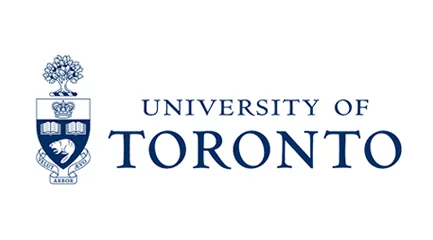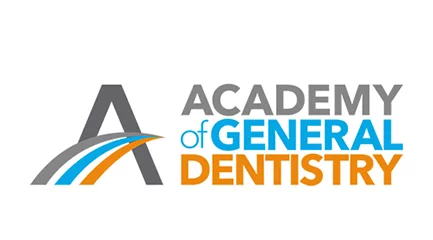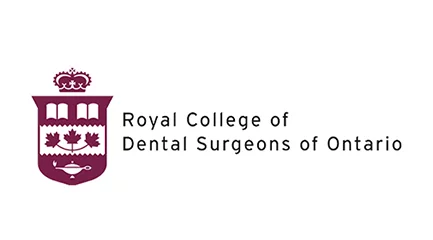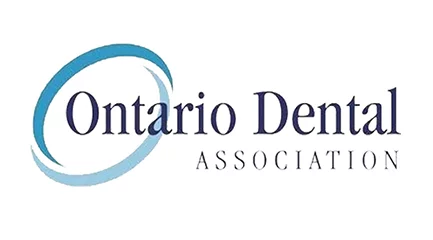ORAL EXAMINATIONS IN LONDON, ONTARIO
The oral cavity serves as the gateway to both the digestive and respiratory tracts. It plays a vital role in speech, chewing, swallowing, digestion, and taste, and acts as a protective barrier for the deeper underlying tissues.
That’s why it is essential to examine the oral cavity regularly to detect and treat any issues in their early stages—minimizing the risk of serious dental problems in the future.
Oral examinations typically include comprehensive documentation and assessment of both intraoral and extraoral structures, as well as hard and soft tissues, to identify various dental conditions, such as:
- Tooth decay
- Gum disease
- Oral cancer
- Underlying medical conditions
Moreover, our oral and general health share a synergistic relationship. Identifying oral diseases in their early stages can significantly reduce the risk of systemic health issues, including diabetes, circulatory disorders, and kidney disease.
During an oral exam, dentists also perform thorough teeth cleaning to remove plaque buildup from tooth surfaces. They may also discuss lifestyle factors that impact oral health and suggest healthier habits and alternatives.
Contact our office at (519) 485-4951 today, or book an appointment
TYPES OF ORAL EXAMINATIONS
An oral exam and dental hygiene appointment typically lasts 40 to 60 minutes and includes several dental assessment procedures, such as:
1. PERIODONTAL EXAM
During a periodontal exam, the dentist evaluates the health of your gums by assessing the surrounding soft tissues, including the muscles of mastication, oral mucosa, salivary glands, and palate. This evaluation often involves the use of X-rays and radiographs to obtain a comprehensive view.
Periodontal evaluations are essential for maintaining good oral health, as they help detect and treat gum-related issues in their early stages.
2. TEMPOROMANDIBULAR JOINT EXAMINATION
During a temporomandibular joint (TMJ) examination, the soft oral tissues, muscles, and ligaments surrounding the gums and teeth are assessed for lesions or abnormalities. Additionally, the cervical region is examined for signs of thyromegaly and vascular conditions.
The salivary glands are palpated to check for tenderness, masses, or enlargement. The facial skeleton is then evaluated for asymmetry, distortions, or malocclusion (improper bite).
Common symptoms that may indicate the need for a TMJ evaluation include headaches, earaches, jaw tenderness, and facial pain.
3. OCCLUSAL EXAM
The occlusal exam, also known as a digital bite analysis, is used to diagnose bite irregularities. This exam is essential for identifying and treating underlying oral issues that can contribute to headaches, earaches, neck pain, tooth damage, muscle fatigue, and TMJ disorders.
During an occlusal examination, the dentist evaluates the functional movement of your teeth through visual and tactile assessments. An ultrasonic Doppler device may also be used to assess the health of the temporomandibular joint and its surrounding structures.
4. A COMPLETE HEAD, MOUTH, AND THROAT EXAMINATION
During this examination, the dentist thoroughly evaluates the health of the head, mouth, and throat to detect any complications in their early stages—allowing for timely treatment and preventing adverse effects on your oral health.
This includes the inspection or palpation of the pharynx, as well as an evaluation of the lips, oral mucosa, tongue, gums, and both soft and hard tissues. As part of the head examination, the facial structures, scalp, and skull are assessed for any distortions or irregularities.
Oral examinations also play an important role in educating patients about their oral health, empowering them to care for their teeth and gums more effectively. Early detection through routine exams helps prevent minor issues from developing into serious dental complications.
At Ingersoll Dental, we are committed to providing exceptional dental care, including comprehensive oral examinations and thorough teeth-cleaning services—often covered by dental insurance and offered at affordable rates.
Your comfort and convenience are our top priorities. Our experienced team of dental professionals is dedicated to correcting dental irregularities and helping you achieve a healthy, bright, and confident smile.
COMMON SYMPTOMS THAT INDICATE YOU MIGHT NEED AN ORAL EXAMINATION
If you’re experiencing any of the symptoms below, it may be time for a comprehensive oral examination. Early detection allows dental professionals to address minor issues before they become more complex and costly to treat:
- Persistent or recurring toothaches
- Tooth sensitivity to hot or cold temperatures
- Enamel erosion or visible cavities
- Sore, swollen, or bleeding gums
- Chronic bad breath (halitosis)
- Problems with dental implants or dentures
- Dry mouth or reduced saliva flow
If you are experiencing any of these dental concerns, it’s important to seek professional care promptly. A thorough oral examination can help accurately diagnose the problem and ensure you receive the right treatment to restore and maintain your oral health.
APPROXIMATE COSTS OF ORAL EXAMINATIONS
The cost of a dental examination can vary depending on several factors, including the complexity of your oral health condition, the specific procedures involved, and your geographic location. On average, a comprehensive oral examination ranges from $100 to $300.
Dentists generally recommend scheduling oral exams and professional cleanings at least twice a year. These regular visits help detect and address oral health issues in their early stages—preserving your natural teeth and preventing the need for more extensive treatments in the future.
FAQS:
Q:1 WHAT SHOULD YOU EXPECT DURING A DENTAL EXAMINATION?
During an oral exam, the dentist performs a thorough dental cleaning and evaluates your oral health using a series of X-rays and radiographs. They diagnose any oral health issues during this evaluation and recommend appropriate treatments. It is recommended to visit your dentist for an oral examination every six months to maintain optimal oral health.
Q:2 WHY DOES ORAL HEALTH HOLD SIGNIFICANCE IN YOUR LIFE?
Good oral health allows you to enjoy life and eat whatever you like. It helps prevent issues such as tooth decay and gum disease, while also reducing the risk of overall health problems.
By maintaining good oral hygiene through daily brushing and flossing, you can preserve your oral health and smile with confidence. Additionally, preserving the function of your natural teeth is important, as no dental alternative can fully replace the original.
Q:3 HOW LONG DOES A DENTAL EXAMINATION TAKE?
Generally, an oral examination appointment includes a thorough dental cleaning and a comprehensive assessment of your oral health. A dental exam typically takes 40 to 60 minutes, depending on the procedures involved and the severity of the patient’s oral condition.










